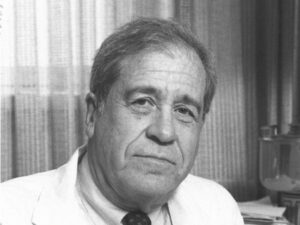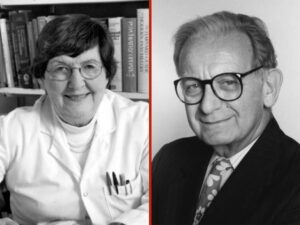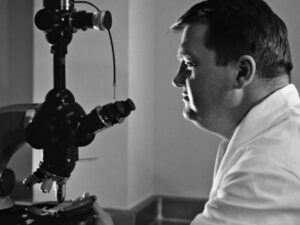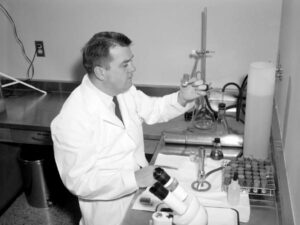Bernard Fisher revolutionized the understanding of breast cancer—but 28 years ago this week, NCI jettisoned him from his position as chair of the National Surgical Adjuvant Breast and Bowel Project.
Carol Fabian recalls the emotional hardship that came with treating women for breast cancer in the 1970s and eighties.
There is arguably no pair of oncology’s founders more famous than James Holland, longtime chairman of the Acute Leukemia Group B (ALGB), and Jimmie Holland, the founder of psycho-oncology.
After ferrying her son to safety across the Hungarian border, Nataliia Verovkina has returned to Kyiv to resume treating cancer patients.
Most of these medical pioneers, nicknamed the “Cancer Cowboys” are gone now. Their ranks once included James Holland, Tom Frei and Emil “Jay” Freireich. Arguably, the best known of this group, Donald Pinkel, died March 9 at his home in San Luis Obispo, CA, at the age of 95.
Dr. Donald Pinkel, my father, was a pioneering pediatric oncologist who developed the first curative drug treatment for acute lymphoblastic leukemia (ALL) in children. This work has led to a vastly improved survival rate for ALL patients throughout the world.
A band of “Cancer Cowboys” once known as the ALGB—Acute Leukemia Group B—are, in large part, responsible for flipping the mortality rate of childhood leukemia from 90% to 10%, where it stands today.
Donald Pinkel, the founding medical director of St. Jude Children’s Research Hospital, died March 9. He was 95. An obituary by Tim Wendel, lecturer at Johns Hopkins University, who interviewed Pinkel for his book Cancer Crossings, appears here. An obituary by Mary Pinkel, Donald Pinkel’s daughter, appears here.
All scheduled cancer care across Ukraine has been stopped as more than 60 hospitals have been badly damaged in the course of Russia’s invasion, Ukrainian oncologists say.
The following list of resources is intended for clinicians, health professionals, patient advocates, and those aiding in the humanitarian effort.















